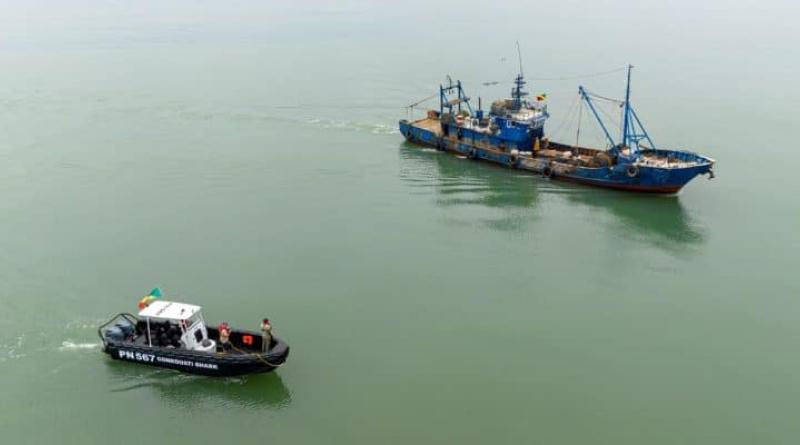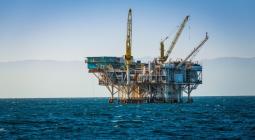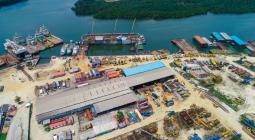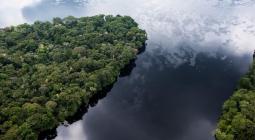CONGO: the Conkouati-Douli park benefits from a marine extension of 2,900 km2

In Congo, the government validates the extension of the Conkouati-Douli national park towards the Atlantic Ocean. This decision will strengthen the conservation of marine wildlife, including sea turtles, dolphins and humpback whales.
Meeting in the Council of Ministers on October 25, 2023, the Congolese government adopted a draft decree modifying Decree No. 99-136 bis of August 14, 1999 creating the Conkouati-Douli national park. With this decree, the total area of the park increases from 504,950 to 795,550 hectares, or a marine extension of 2,900 km 2 .
The extension zone of the Conkouati-Douli national park © Noé
This decision “allows Congo to align with the Kumning-Montreal agreement (adopted in 2022 in Canada, Editor’s note) relating to the adoption of a new global framework which aims to halt the decline of biodiversity by to 2030, in particular thanks to the expected protection of at least 30% of land and seas ,” explains Thierry Lézin Moungalla, the spokesperson for the Congolese government. According to the Noé association which ensures the delegated management of this biodiversity hotspot, Conkouati-Douli now has a total maritime area of 4,275 km 2 .
The fight against illegal fishing
“To this is added a land portion of 3,680 km 2 , making a total for the park of 7,955 km 2 , ” explains Bas Verhage, Noé’s fundraising director. The association based in Paris in France will therefore have to strengthen its activities at sea, in particular thanks to Conkouati Shark, a 9 m vessel. But the extension of the park “will require us to increase our means of maritime transport to reach greater distances at sea where the limit of the extension is 123 km from the coast (unlike the current 25 km), requiring carry out missions lasting several days, with greater security measures (means of very long distance communication, rescue boat, etc.) ,” explains Bas Verhage.
This extension should above all reduce illegal fishing near the Congolese coasts. This activity, denounced for years by several environmental defense organizations in the Gulf of Guinea, is attributed to Chinese trawlers carrying out industrial fishing. However, “the Conkouati-Douli national park is home to a large fish reproduction area through its mangroves and its lagoon connected to the sea through the mouth. Illegal fishing near the coast and in the park has the effect of depleting juvenile stocks and fish intended for artisanal fishing on which a large part of the Congolese coastal population depends,” explains Bas Verhage of the Noé association .
The symbol of Congo's commitment to biodiversity
According to him, the extension of the park towards the sea will allow the protection of turtles, dolphins and humpback whales. For the record, the land part of Conkouati-Douli is located straddling the districts of Nzambi and Madingo-Kayes, in the extreme northwest of the Kouilou department. The park is also close to the villages of Cotovindou and Louléma, along the border between Congo and Gabon.
The natural area is watered by the Noumbi, Ngongo and Niambi rivers. It has a very dense flora, typical of equatorial vegetation. Its lush forests provide a living environment for more than 8,000 chimpanzees and 2,000 western lowland gorillas. Conkouati-Douli National Park is also home to more than 1,000 forest elephants. These pachyderms rub shoulders with numerous species of migratory birds which come to squat in the numerous wetlands of the park.






